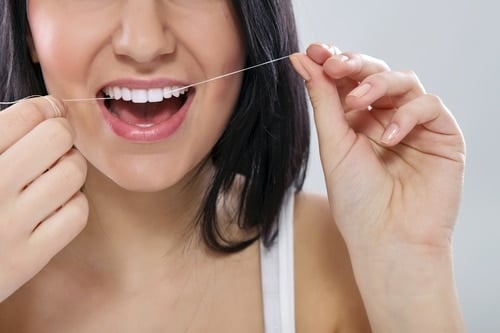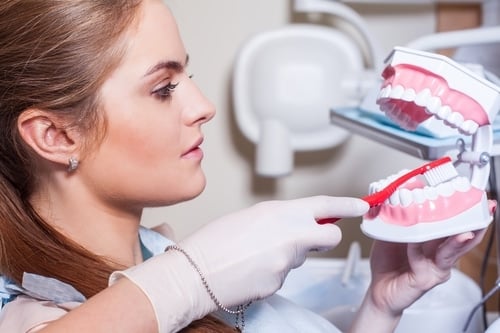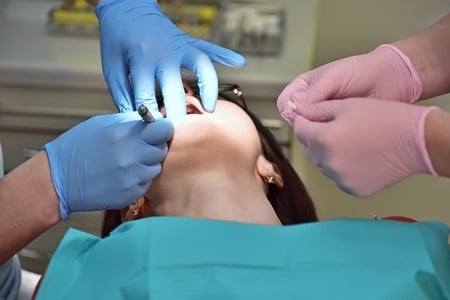 In this article you will learn about proper dental implant maintenance techniques, both on the personal and professional levels.
In this article you will learn about proper dental implant maintenance techniques, both on the personal and professional levels.
Dental Implant Home Care
Two things that are essential to the success of dental implants are good oral hygiene and avoiding the use of tobacco products. Failure to take these measures can result in plaque and bacteria building up around the implant, causing infections such as peri-implantitis and mucositis. When it comes to dental implants, reducing plaque and bacteria buildup must be given special attention to minimize the chances for implant failure. Although it may not seem like it, the gum tissue surrounding implanted teeth is structured differently than that of natural teeth. The main difference is that there is more space between the gum tissue and an implanted tooth, making it more likely for plaque to build up and cause gum infections. As a result, some new techniques will be required to brush and floss these areas, which are discussed below.Brushing Dental Implants
Brushing your teeth when you have dental implants is very similar to brushing natural teeth but with some extra attention given to the implanted teeth. When brushing an implanted tooth it is important to emphasize more on brushing the area between your gum line and your implanted tooth. The best way to describe this is to envision the bristle of your brush actually reaching between your gum tissue and the implanted tooth on every stroke.
Flossing Dental Implants
Flossing is important for good oral health but even more so when it comes to implants. Since your toothbrush cannot reach small areas between your teeth and under your gums, flossing is required to remove plaque from those areas. Even if you hate flossing, make sure to at least floss the areas surrounding your implanted teeth to remove harmful plaque.Other Dental Implant Maintenance Measures
Aside from taking extra care with brushing and flossing implants to remove plaque and bacteria buildup, some other measures that can be taken to maximize your oral health include:- -Using alcohol-free antibacterial mouthwash regularly
- -Using an interdental brush to reach areas that your toothbrush can not get to
- -Using toothpaste with antibacterial agents in it
- -Avoid using toothpastes with abrasive materials such as baking soda or stain removers
Dental Implant Professional Care
Just like with natural teeth, visiting a dentist regularly for a professional cleaning is crucial to maintain good oral health. When you have implanted teeth, these visits should be every 3-6 months to ensure the maintenance of successful implants. After your dental implant surgery, your periodontist will recommend how often you should receive professional cleaning. These regular visits will ensure that plaque buildup is being minimized, and will also allow for your periodontist to catch any potential problems in their early stages. During these visits you may realize that they are using different equipment to clean your implants. The reason for this is that metal tools that are often used on natural teeth can scratch the surface of your implant making it easier for bacteria to accumulate on the surface.
During these visits you may realize that they are using different equipment to clean your implants. The reason for this is that metal tools that are often used on natural teeth can scratch the surface of your implant making it easier for bacteria to accumulate on the surface.